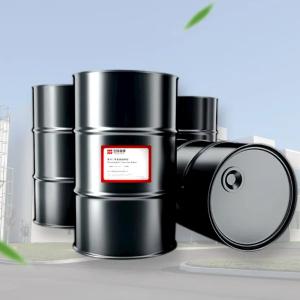Product Details
What Does High-Solid, Low-Viscosity Mean?
High-solid, low-viscosity, as the name suggests, refers to a
material with high solid content and low viscosity. Polyaspartic
polyurea resin is a typical example of this kind of material. High
solid content means fewer volatile substances in the material,
resulting in lower VOC (Volatile Organic Compounds) emissions,
making it suitable for creating environmentally friendly materials.
Low viscosity enhances the workability of the material,
facilitating easier application. Additionally, resins with lower
viscosity require fewer diluents, further reducing VOC emissions.
Advantages of Polyaspartic Polyurea Coatings
Coatings derived from polyaspartic polyurea resin boast several
environmental benefits:
- High solid content, low or no solvent VOCs.
- No need for high-temperature curing.
- Rapid curing process.
- Fewer application layers required due to thick coating ability.
- Over 90% solid content in application, exempting outdoor
unorganized emission collection.
- Minimal wastewater and exhaust emissions. These coatings comply
with national environmental protection standards. The high-solid,
low-viscosity nature of polyaspartic polyurea resin makes these
coatings more environmentally friendly and easier to apply.
Relationship Between Coating Viscosity and Solid Content
The viscosity and solid content of a coating are interrelated, but
not in an absolute manner. High-solid coatings are not necessarily
highly viscous, and highly viscous coatings don't always have high
solid content. Viscosity refers to the relative thickness or
fluidity of a coating, while solid content indicates the amount of
effective components in the coating. In production, several factors
influence the viscosity of a coating:
- Resins with higher molecular weight and concentration may result in
higher viscosity.
- Coatings with a higher content of pigments and fillers usually
exhibit higher viscosity.
- The use of rheological additives, which also act as thickeners, can
increase the relative viscosity. Greater quantities of these
additives lead to higher viscosity in the coating.
Feiyang has been specializing in the production of raw materials
for polyaspartic coatings for 30 years and can provide polyaspartic
resins, hardeners and coating formulations. Some of our
polyaspartic coating formulations: Polyaspartic Coating
Feel free to contact us: marketing@feiyang.com.cn
Our products list:
Learn more polyaspartic knowledge: Polyaspartic FAQ
Company Profile
Shenzhen Feiyang Protech Corp., Ltd. specializes in researching and
producing polyaspartic polyurea resin and other new chemical
products. We are recognized as a "National Special New Key Little
Giant" and a "State-level High-tech Enterprise", with more than 50
polyaspartic polyurea invention patents. We also participated in
the preparation of 13 industry standards for polyaspartic polyurea
materials as a leading company in this field, ranking No.1 in the
Chinese market.
In the coating industry, polyaspartic polyurea is used in
construction machinery, automobile, containers, fan blades, marine
heavy corrosion protection, and high-end industrial and commercial
floor coatings. In the adhesive field, it is mainly used in
sealants, stone adhesives, electronic adhesives, film circuit
packaging adhesives, and other high-end applications. In the
waterproofing materials sector, it is primarily used in
hydroelectric dams, water parks, building waterproofing repair
materials, and other areas. In the structural materials field, it
is applied to curling tracks, artificial ice skating rinks, and
other structural materials.
Polyaspartic polyurea is considered a high-end new material in the
strategy of manufacturing power. We have broken the foreign
technology monopoly and filled the domestic market gap. Due to its
comprehensive characteristics of "Environmental protection, Energy
saving, and Long durability", polyaspartic polyurea can contribute
to the realization of genuine carbon neutrality in the coatings,
adhesives, and materials industries.

Since 2012, Feiyang polyaspartic ester resin has been supplied
overseas. It has been widely used to replace Bayer's current
polyaspartic system in many coating companies and has been applied
in anti-corrosion and waterproofing by international coating
companies.




